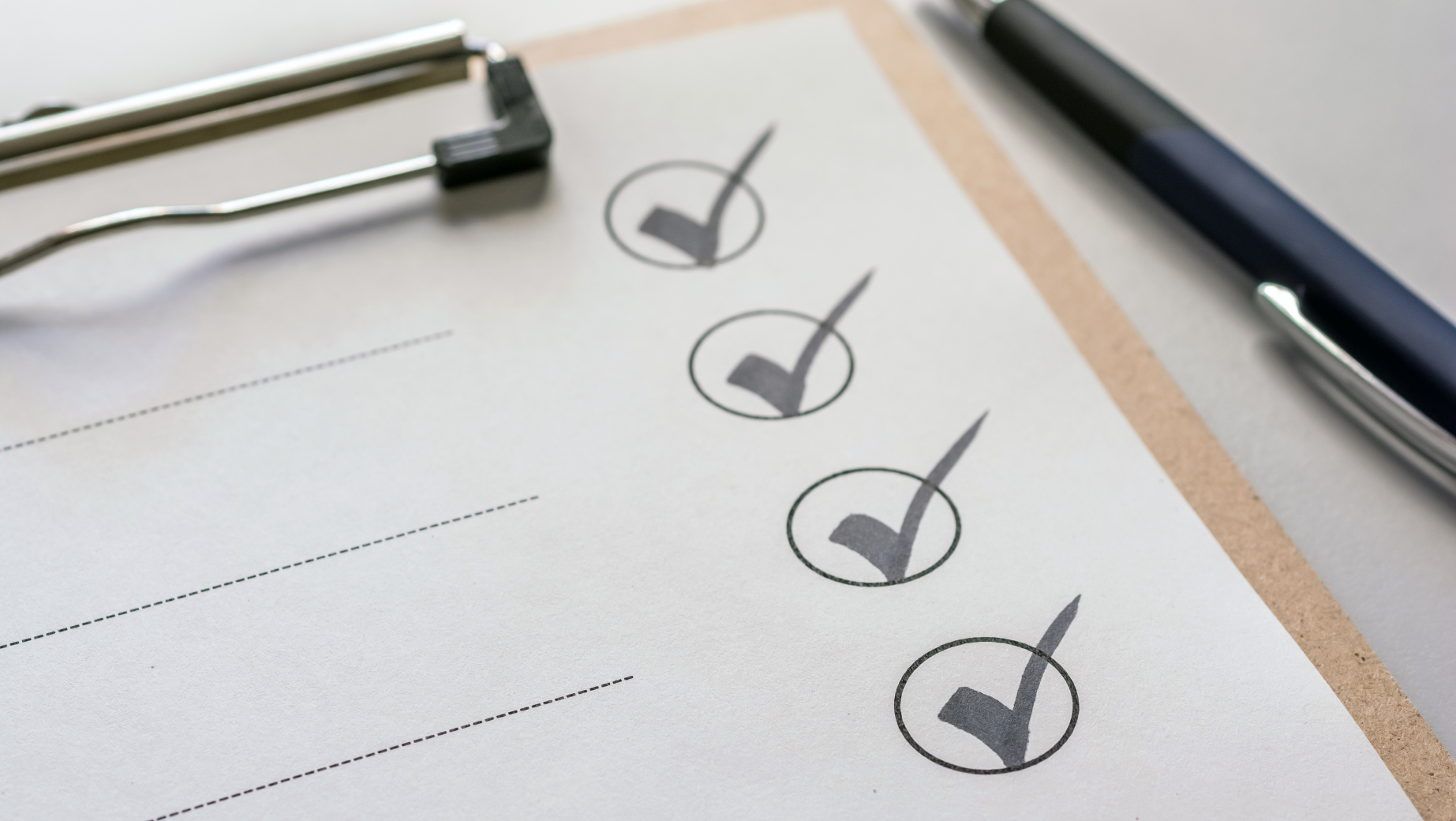Checking the Operations of The Business
Sales
– Check monthly and yearly sales patterns – identify seasonal peaks and troughs.
– Compare sales trends with industry trends.
– Determine if the business is expending, losing sales or static.
– Value existing stock – ensure it is not old and unsalable.
– Identify the businesses customer base and percentage of sales from different customers. Check to see if customers will stay with the business if you purchase it.
– Determine where each of the business products is on their respective life cycles.
– Determine if you will be able to increase sales with your current resources.
– Find out if you are able to continue to buy from existing suppliers.
– Find out if there are any local developments that may impact on future trade.
Costs
– Identify all fixed and variable costs and include interest expenses on your borrowing for the business.
– Examine the costs recorded for the business and ensure they are reasonable.
– Determine whether recorded depreciation costs are reasonable.
– Determine weather you will incur similar costs to the current owner.
– Are there any potential cost savings you can make?
– Are there any repairs or maintenance needed?
Profits
– Analyse financial records, including balance sheet, profit and loss statements, business activity statements and sales records.
– Determine whether the business generates sufficient profits for a reasonable income (be careful if you want to employ a cleaner, cook, maintenance person, gardener or manager as the current owner may be doing this themselves and not factoring in a cost – this could significantly eat into your profit).
– Look at effects of increased or decreased sales on your profit (cross check this with losing your biggest customer – what impact would that have).
– Compare gross profit with industry trends.
Assets
– Identify all assets that you are buying. Refer to an asset list / register if available.
– Check depreciation schedule for equipment, fixtures, fittings etc.
– Determine book value, market value and replacement value of fixed assets.
– Identify any current leases for fixed assets.
– Insure equipment is in good working condition.
– Determine if any equipment is unnecessary or obsolete for the business.
Staff
– Determine whether existing staff will continue employment.
– Identify key staff, review salaries, employment packages and FBT implications.
– Assess holiday pay & long service leave obligations.
The Purchase Agreement
Based on your due diligence and the risks involved, you then need to decide if you are comfortable with the purchase price of the business. Closely review the draft purchase agreement, as well as all the clauses in the agreement in conjunction with your solicitor.
Ensure the purchase agreement:
– Details all the assets and liabilities to be transferred
– Specifies the date when the business is to be taken over
– States whether the offer is conditional on:
-
- Obtaining finance
- Inspecting all records and a due diligence process
- Receiving necessary licenses and rights
- Minimum trading levels being met during a trial period
- The vendor continuing to work for a handover period
This Purchase Agreement list is not exhaustive and needs to be considered with your accountant and solicitor. A number of the questions we suggest you seek answers to above, you will only receive if you are conducting a proper due diligence, which may require a non refundable deposit, as the vendor needs to be sure you are not a competitor trawling through their books and customer list looking for some competitive information.
[/vc_column_text][/vc_column][/vc_row]
Checking the Operations of The Business
Sales
– Check monthly and yearly sales patterns – identify seasonal peaks and troughs.
– Compare sales trends with industry trends.
– Determine if the business is expending, losing sales or static.
– Value existing stock – ensure it is not old and unsalable.
– Identify the businesses customer base and percentage of sales from different customers. Check to see if customers will stay with the business if you purchase it.
– Determine where each of the business products is on their respective life cycles.
– Determine if you will be able to increase sales with your current resources.
– Find out if you are able to continue to buy from existing suppliers.
– Find out if there are any local developments that may impact on future trade.
Costs
– Identify all fixed and variable costs and include interest expenses on your borrowing for the business.
– Examine the costs recorded for the business and ensure they are reasonable.
– Determine whether recorded depreciation costs are reasonable.
– Determine weather you will incur similar costs to the current owner.
– Are there any potential cost savings you can make?
– Are there any repairs or maintenance needed?
Profits
– Analyse financial records, including balance sheet, profit and loss statements, business activity statements and sales records.
– Determine whether the business generates sufficient profits for a reasonable income (be careful if you want to employ a cleaner, cook, maintenance person, gardener or manager as the current owner may be doing this themselves and not factoring in a cost – this could significantly eat into your profit).
– Look at effects of increased or decreased sales on your profit (cross check this with losing your biggest customer – what impact would that have).
– Compare gross profit with industry trends.
Assets
– Identify all assets that you are buying. Refer to an asset list / register if available.
– Check depreciation schedule for equipment, fixtures, fittings etc.
– Determine book value, market value and replacement value of fixed assets.
– Identify any current leases for fixed assets.
– Insure equipment is in good working condition.
– Determine if any equipment is unnecessary or obsolete for the business.
Staff
– Determine whether existing staff will continue employment.
– Identify key staff, review salaries, employment packages and FBT implications.
– Assess holiday pay & long service leave obligations.
The Purchase Agreement
Based on your due diligence and the risks involved, you then need to decide if you are comfortable with the purchase price of the business. Closely review the draft purchase agreement, as well as all the clauses in the agreement in conjunction with your solicitor.
Ensure the purchase agreement:
– Details all the assets and liabilities to be transferred
– Specifies the date when the business is to be taken over
– States whether the offer is conditional on:
-
- Obtaining finance
- Inspecting all records and a due diligence process
- Receiving necessary licenses and rights
- Minimum trading levels being met during a trial period
- The vendor continuing to work for a handover period
This Purchase Agreement list is not exhaustive and needs to be considered with your accountant and solicitor. A number of the questions we suggest you seek answers to above, you will only receive if you are conducting a proper due diligence, which may require a non refundable deposit, as the vendor needs to be sure you are not a competitor trawling through their books and customer list looking for some competitive information.
Making the decision to purchase a business is a big one, and making sure you purchase the right business for you is absolutely crucial. There are a number of questions you need to ask, and decisions you need to make to ensure that you know everything about the business you’re buying before you make the purchase.
At Rogerson Kenny, we’ve made a comprehensive list of all the things you should be checking and considering before purchasing a business:
General Information About The Business
- Establish the reasons why the business is for sale – Is it in decline
- Decide whether the type and size of the business suits your needs, skills, experience, financial capacity and future plans.
- Obtain historical details of the business’ sales, costs, profits and assets.
- Research current and potential competitors. It may be prudent to consider placing restrictions in the contract of sale on the future trading activities of the vendor (i.e. you wouldn’t want them opening up in competition down the road or working for a competitor).
- Inspect contract for current and future work with customers.
- Review the draft purchase agreement with your solicitor and carry out the necessary searches.
- Investigate the Work cover claim record of the business.
- Review the lease terms on the business premises (if it is only a 5 or ten year lease, technically you would have to assume that the landlord could kick you out and build apartment blocks on your site – be careful with this. The longer the lease the better).
- Whether you want to acquire a service, retail, manufacturing or wholesale business, be sure to analyse the industry as well. Examine the current industry trends and consider the implications of an economic downturn.
Sale of the Business and GST
The supply of a business as a going concern is GST Free if the following conditions are met:
– The purchaser and the vendor must both be registered for GST.
– The business is actually for sale with money changing hands.
– The vendor must carry on the business until the day of sale.
– All things required for continued operation of the business must be supplied.
– Both parties must agree in writing that the business is a going concern.
If you would like to know more about GST, we suggest you speak to one of our consultants at Rogerson Kenny Business Accountants Melbourne for advice.
Legal Issues
– The purchase agreement including terms of sale.
– Council and other searches to ensure there are no plans or council orders that could disrupt the business or result in a decline in sales (ie. making the street you operate on no parking).
– Draft restraint of trade terms for the vendor dealing with existing customers or conducting a similar business within a geographical radius of the business.
– Transfer of business name, trademarks etc.
– Industry specific legislative requirements.
For more legal issues (including leases and contracts), please click here.
Checking the Operations of The Business
Sales
– Check monthly and yearly sales patterns – identify seasonal peaks and troughs.
– Compare sales trends with industry trends.
– Determine if the business is expending, losing sales or static.
– Value existing stock – ensure it is not old and unsalable.
– Identify the businesses customer base and percentage of sales from different customers. Check to see if customers will stay with the business if you purchase it.
– Determine where each of the business products is on their respective life cycles.
– Determine if you will be able to increase sales with your current resources.
– Find out if you are able to continue to buy from existing suppliers.
– Find out if there are any local developments that may impact on future trade.
Costs
– Identify all fixed and variable costs and include interest expenses on your borrowing for the business.
– Examine the costs recorded for the business and ensure they are reasonable.
– Determine whether recorded depreciation costs are reasonable.
– Determine weather you will incur similar costs to the current owner.
– Are there any potential cost savings you can make?
– Are there any repairs or maintenance needed?
Profits
– Analyse financial records, including balance sheet, profit and loss statements, business activity statements and sales records.
– Determine whether the business generates sufficient profits for a reasonable income (be careful if you want to employ a cleaner, cook, maintenance person, gardener or manager as the current owner may be doing this themselves and not factoring in a cost – this could significantly eat into your profit).
– Look at effects of increased or decreased sales on your profit (cross check this with losing your biggest customer – what impact would that have).
– Compare gross profit with industry trends.
Assets
– Identify all assets that you are buying. Refer to an asset list / register if available.
– Check depreciation schedule for equipment, fixtures, fittings etc.
– Determine book value, market value and replacement value of fixed assets.
– Identify any current leases for fixed assets.
– Insure equipment is in good working condition.
– Determine if any equipment is unnecessary or obsolete for the business.
Staff
– Determine whether existing staff will continue employment.
– Identify key staff, review salaries, employment packages and FBT implications.
– Assess holiday pay & long service leave obligations.
The Purchase Agreement
Based on your due diligence and the risks involved, you then need to decide if you are comfortable with the purchase price of the business. Closely review the draft purchase agreement, as well as all the clauses in the agreement in conjunction with your solicitor.
Ensure the purchase agreement:
– Details all the assets and liabilities to be transferred
– Specifies the date when the business is to be taken over
– States whether the offer is conditional on:
-
- Obtaining finance
- Inspecting all records and a due diligence process
- Receiving necessary licenses and rights
- Minimum trading levels being met during a trial period
- The vendor continuing to work for a handover period
This Purchase Agreement list is not exhaustive and needs to be considered with your accountant and solicitor. A number of the questions we suggest you seek answers to above, you will only receive if you are conducting a proper due diligence, which may require a non refundable deposit, as the vendor needs to be sure you are not a competitor trawling through their books and customer list looking for some competitive information.







